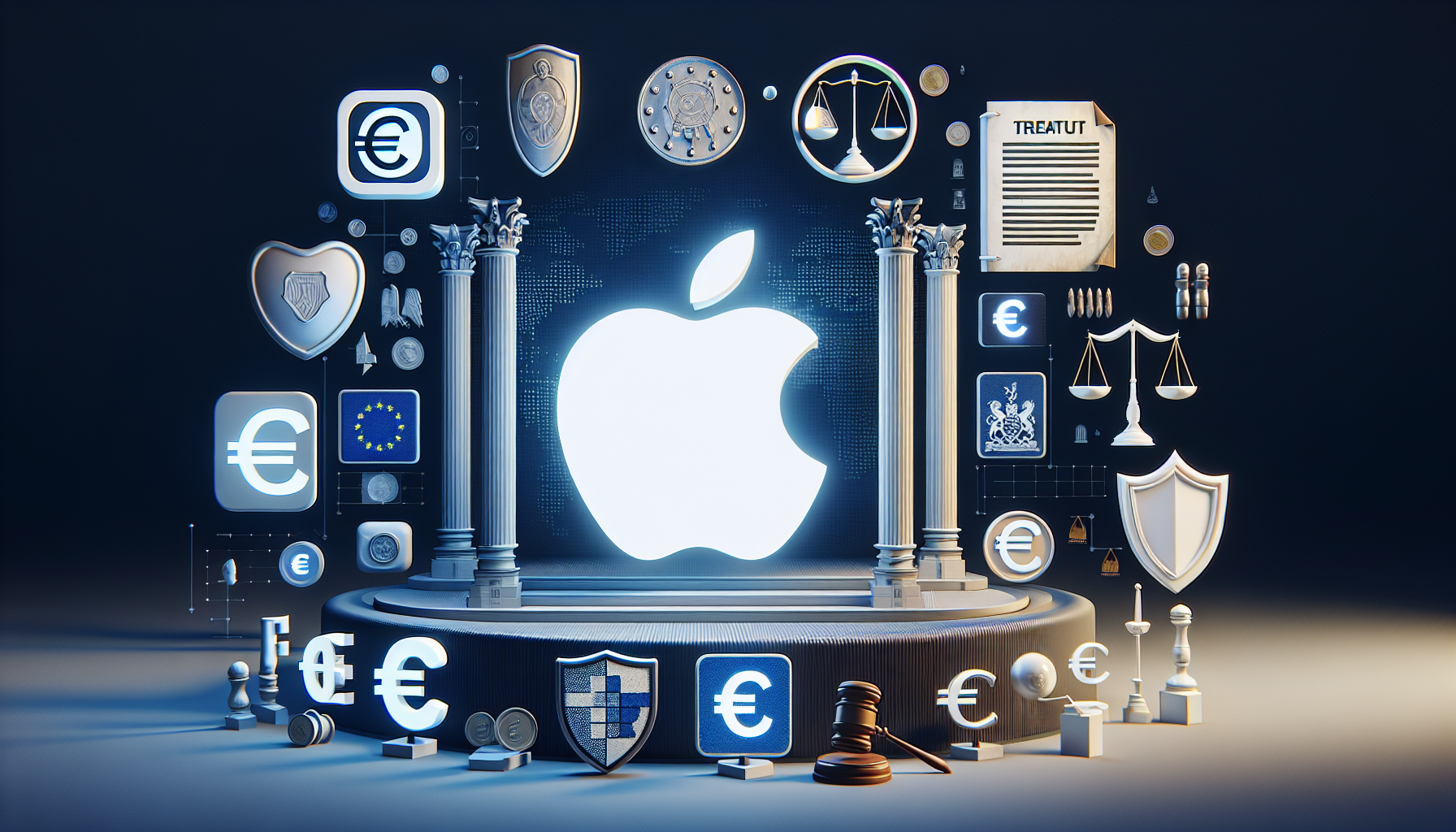
Apple’s Strategic Change in the EU: App Store Alternatives to Evade Fines
Apple, the renowned technology leader celebrated for its groundbreaking products and services, is implementing substantial alterations to its App Store practices in the European Union (EU). This initiative surfaces as a tactical reaction to prevent hefty penalties imposed under the EU’s Digital Markets Act (DMA). Let’s explore the specifics of this situation and its ramifications for the technology sector.
Grasping the Digital Markets Act
The Digital Markets Act represents a pivotal piece of legislation designed to limit the control exerted by major Tech companies. Its goal is to promote equitable competition and avert monopolistic behavior by establishing clear guidelines for digital platforms functioning within the EU. Apple, with its significant market reach, has faced scrutiny regarding its App Store practices, which are considered non-compliant with the DMA.
Apple’s Compliance Initiatives
To align itself with the DMA, Apple has declared that it will permit developers in the EU to present iOS applications independently of its exclusive App Store. This decision denotes a considerable transformation in Apple’s business strategy, which has historically exercised stringent oversight over application distribution on its devices. The adjustment aims to sidestep escalating fines that might soar to 5% of Apple’s average daily global earnings.
The Financial Consequences
Apple’s choice to revise its App Store practices is mainly influenced by fiscal factors. The company was recently slapped with a €500 million fine for violating the DMA, and additional non-compliance might trigger even heftier penalties. By providing alternative channels for app distribution, Apple intends to reduce these financial threats while preserving its market foothold in the EU.
The European Commission’s Position
The European Commission has been resolute in its enforcement of the DMA, highlighting the necessity of gathering input from market participants and relevant stakeholders before making further determinations. The commission’s representative stressed the requirement for Apple to undertake more modifications to guarantee complete adherence to the DMA, notwithstanding Apple’s intentions to contest the ruling.
The Overall Impact on US-EU Relations
This occurrence happens at a moment when Brussels and Washington are in the midst of negotiating a trade agreement, with a deadline approaching. The EU’s rigorous regulations on major Tech firms have been a sore spot between Brussels and the US, yet EU leaders have clarified that their regulatory structure will not be modified in the context of trade discussions.
Conclusion
Apple’s move to provide App Store alternatives within the EU marks a crucial stride towards conformity with the Digital Markets Act. This action not only emphasizes the increasing authority of regulatory entities over major Tech but also underscores the necessity of evolving business strategies to remain in sync with changing legal frameworks. As the technology sector advances through these transformations, the emphasis continues to be on encouraging fair competition and innovation.
Q&A Session
Q1: What is the Digital Markets Act?
A1: The Digital Markets Act is legislation from the EU targeted at regulating major Tech companies to promote fair competition and prevent monopolistic actions.
Q2: Why is Apple altering its App Store practices in the EU?
A2: Apple is modifying its practices to comply with the EU’s Digital Markets Act and avert significant penalties for non-compliance.
Q3: How will this modification influence app developers in the EU?
A3: Developers will have the opportunity to distribute iOS apps outside of Apple’s App Store, potentially broadening their distribution channels and diminishing reliance on Apple’s platform.
Q4: What are the potential financial repercussions for Apple under the DMA?
A4: Non-compliance with the DMA could lead to fines amounting to up to 5% of Apple’s average daily global revenue.
Q5: How does this development affect US-EU trade relations?
A5: The EU’s stringent regulations regarding major Tech companies are a point of friction in US-EU trade negotiations, but EU leaders have asserted that their regulatory framework will remain unchanged.
Q6: Will Apple contest the European Commission’s ruling?
A6: Yes, Apple intends to appeal the ruling, although it is implementing changes to ensure compliance with the DMA in the interim.